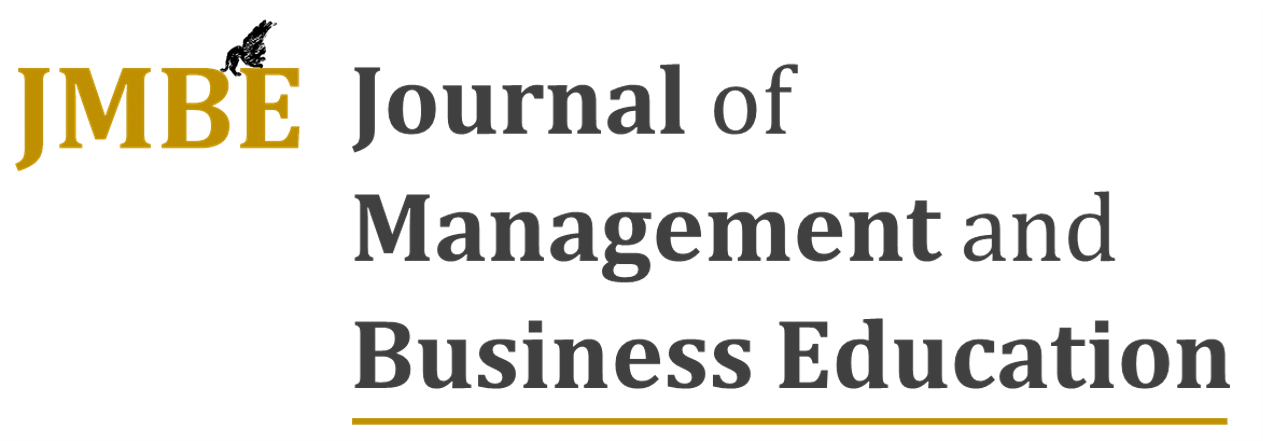New ways of teaching and learning in operations management subject
DOI:
https://doi.org/10.35564/jmbe.2018.0006Keywords:
teaching-learning process, project-based learning, skill, operation managementAbstract
The students of 2018 are different from those of the past, neither worse nor better, just different, from the point of view that they are more tactile and visual than our previous students, they are the digital generation. The nowadays educational requires the transformation and application of new teaching-learning methods and tools. It has been shown that will the old methods students do not learn the skills they will need for their later integration into the working world. The biggest complaint received at universities from companies is that students lack skills such as leadership, social skills, teamwork, deal with the staff, corporate culture, negotiation, etc. With these complaints in mind, the authors of this paper have decided to change the methodology of teaching the Operations Management subject in the Faculty of Business Administration of the Universitat Politècnica de València. This paper presents a new methodology where the students learn Operations Management by doing Operations Management. For that the authors have developed a Project-Based Learning for this subject. Also included the problems encountered in the development and implementation of the system, the keys to its application and the results. This last section from the point of view of students and teachers.
Downloads
References
Barbera Ribera, M.T.; Estelles-Miguel, S.; & Dema Perez, C.M. (2015). Student opinion on the application of active methodologies in Peris-Ortiz, M. & Merigó Lindahl, J.M (eds). Sustainable Learning in Higher Education: Developing competencies for the Global Marketplace, 157-167. Springer, Switzerland.
https://doi.org/10.1007/978-3-319-10804-9_12
Blumenfeld, P.C.; Soloway, E.; Marx, R.W.; Krajcik, J.; Guzdial, M.; & Palincsar, A. (1991). Motivating project-based learning. Sustaining the doing, supporting the learning. Educational Psychologist, 26(3), 369-398.
https://doi.org/10.1207/s15326985ep2603&4_8
Boaler, J (2002) Experiencing school mathematics: Traditional and reform approaches to teaching and their impact on student learning. Routledge.
https://doi.org/10.4324/9781410606365
Cohen, L.; Manion, L.; & Morrison, K. (2004). A guide to teaching practice. Psychology Press.
Diehl, W.; Grobe, T.; Lopez, H.; & Cabral, C. (1999). Project-based learning: A strategy for teaching and learning. Boston, MA. Center for Youth Development and Education, Corporation for Business, Work and Learning.
Europapress (2016). Las 10 competencias más demandadas por las empresas en el mercado laboral. Publicado 19/05/2016 http://www.europapress.es/economia/noticia-10-competencias-mas-demandadas-empresas-mercado-laboral-20160519110458.html Consultado (06/03/2017).
Garrigos-Simon, F.J.; Oltra, J.V.; Montesa-Antdres, J.O. et al. (2015). The use of Facebook and social networks to improve education. Dirección y Organización, 55(April), 4-10.
https://doi.org/10.37610/dyo.v0i55.463
Jones, B.; Rasmussen, C.; & Moffit, M. (1997). Real-life problem solving: A collaborative approach to interdisciplinary learning. Washington, DC. American Psychological Association.
https://doi.org/10.1037/10266-000
Kuhn D (2005). Education for thinking. Harvard University Press.
Marx, RW.; Blumenfeld, PC.; Krajcik, JS.; & Soloway, E. (1997). Enacting project-based science: challenges for practice and policy. Elementary School Journal, 97, 341-358.
https://doi.org/10.1086/461870
Moursund, D (1999). Project-based learning using information technology. Eugene, OR. International Society for Technology in Education.
Thomas, J.W.; Mergendoller, J.R.; & Michaelson, A. (1999). Project-based learning: A handbook for middle and high school teachers. Novato, CA: The Buck Institute for Education.
Thomas, J.W. (2000). A Review of Research on Project-Based Learning. http://www.autodesk.com/foundation. Publicado en Marzo de 2000. Consultado 17/03/2017.
Downloads
Published
How to Cite
Issue
Section
License
Copyright (c) 2023 Journal of Management and Business Education

This work is licensed under a Creative Commons Attribution-NonCommercial-ShareAlike 4.0 International License.
License terms at: https://creativecommons.org/licenses/by-nc/4.0/legalcode




